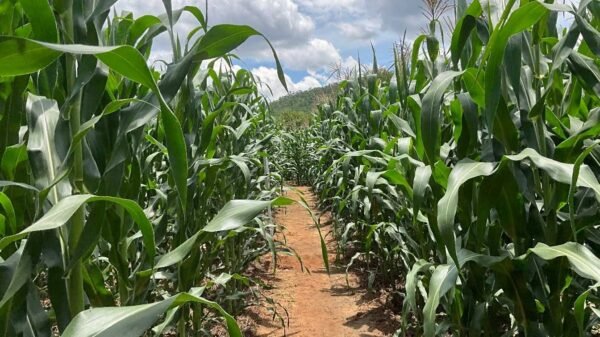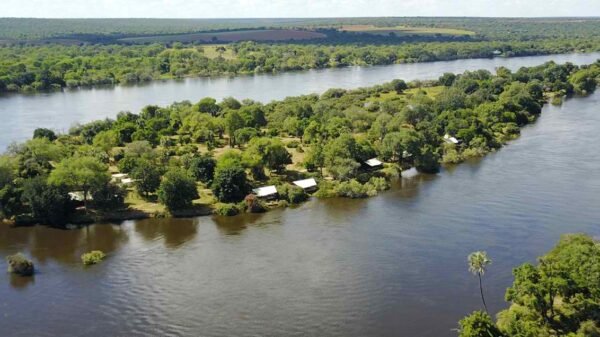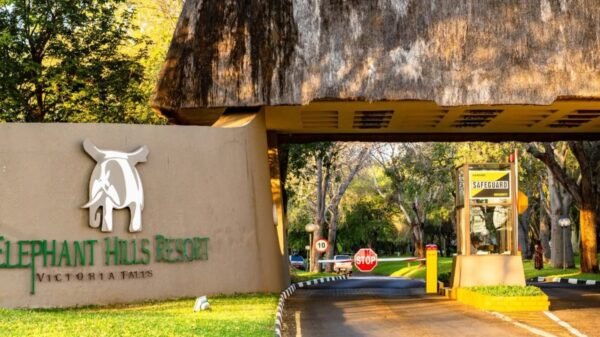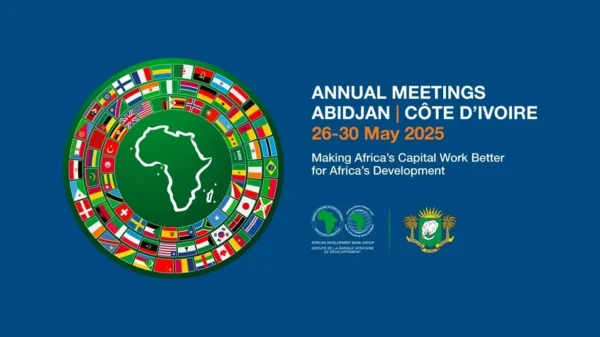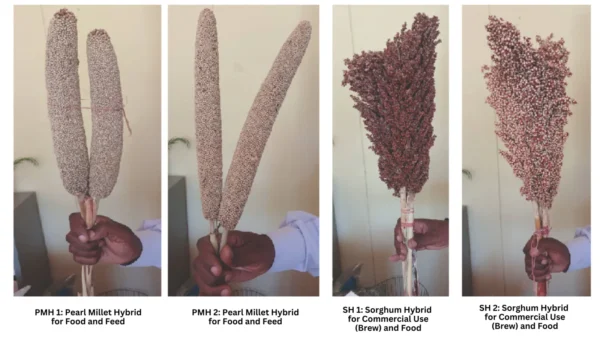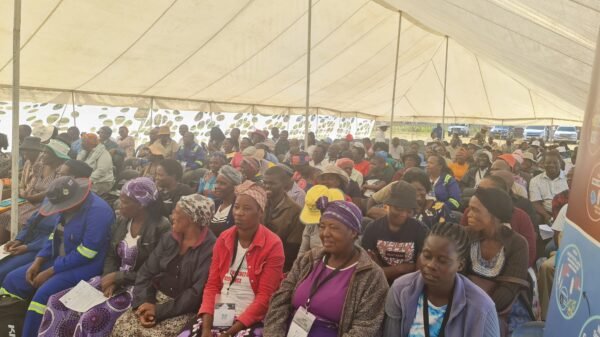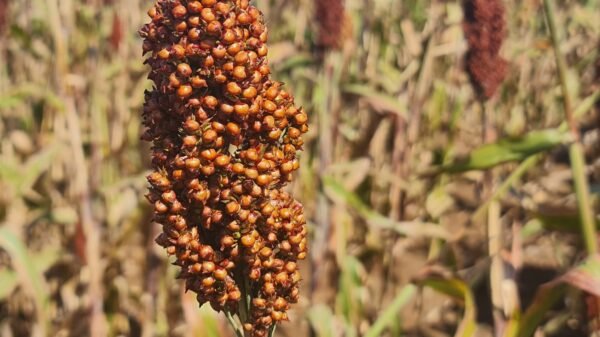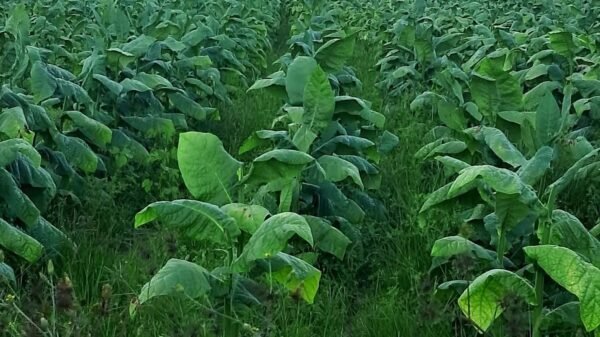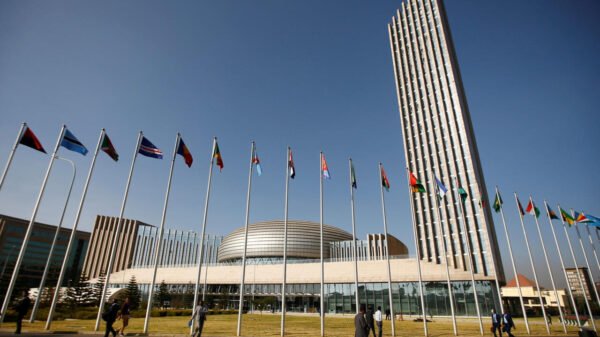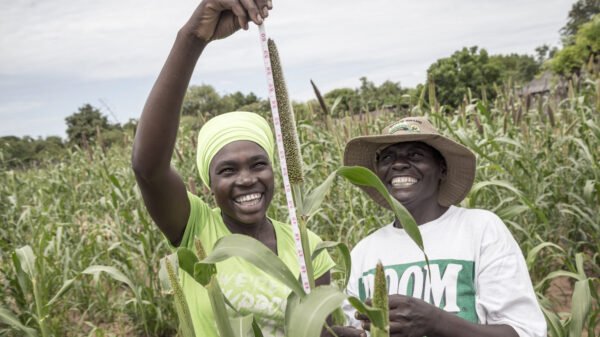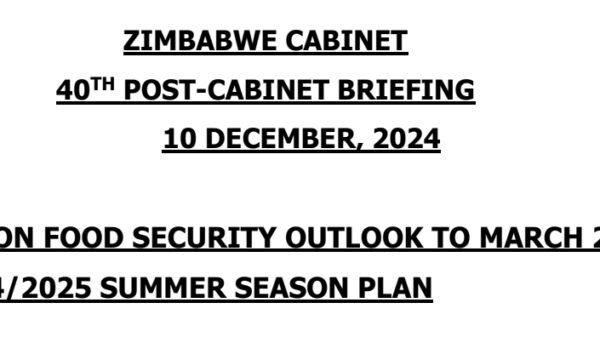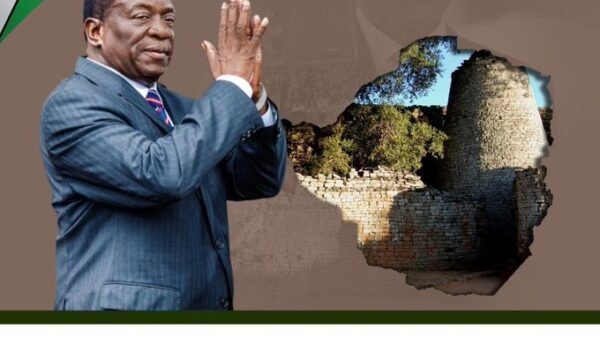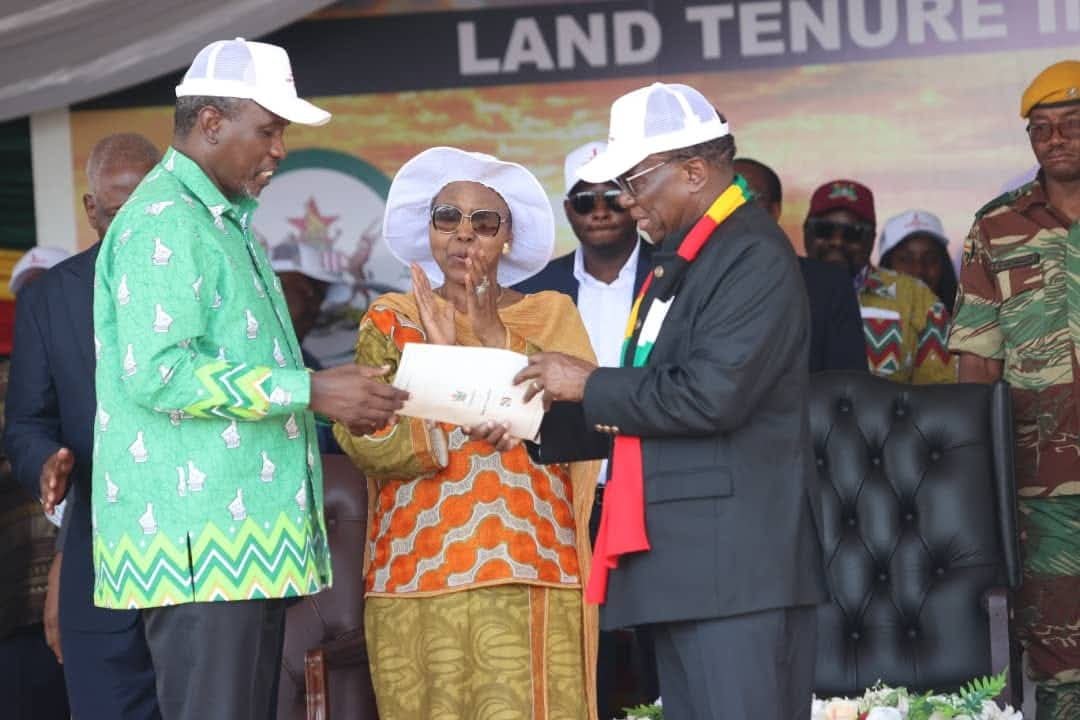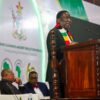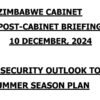By Brezh Malaba
TWENTY-FIVE years after the launch of the fast-track land redistribution programme, the Zimbabwean government has appointed a Land Tenure Implementation Committee chaired by Zanu PF oligarch Kudakwashe Tagwirei.
But the committee is off to a controversial start, after the businessman revealed that banks will not be allowed to seize land from farmers who default on loans. If that is the case, how will these so-called title deeds be used as collateral?
Most importantly, what guarantee is there that this new “title deeds” scheme is not yet another grand heist whose debts will be inherited by the state and the burden placed squarely on the shoulders of long-suffering taxpayers?
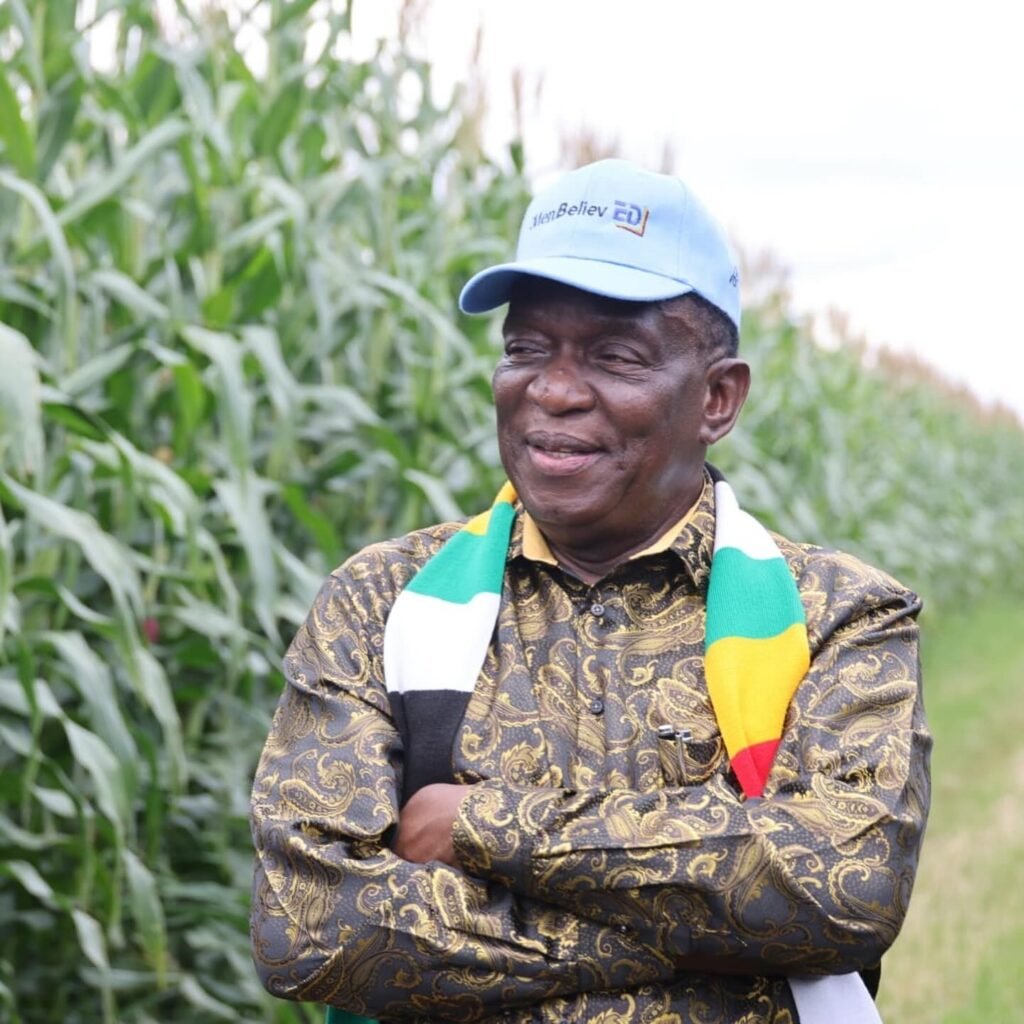
President Emmerson Mnangagwa is in the eye of a title deeds storm as Zimbabweans question his real intentions. Picture credits: Information ministry.
For decades, agriculture in Zimbabwe has been used by political elites and their cronies as a conduit for massive looting. From the Farm Mechanisation programme to Command Agriculture, the common thread has been systemic corruption.
Dr Alex Magaisa (pictured below), the late lawyer and public intellectual, warned against the criminal behaviour of a predatory elite hell-bent on self-enrichment at the expense of the people of Zimbabwe. He wrote extensively on the naked plunder of public funds via the Farm Mechanisation scandal. The names of fat cats who looted the scheme is available, but the culprits have not been brought to justice.
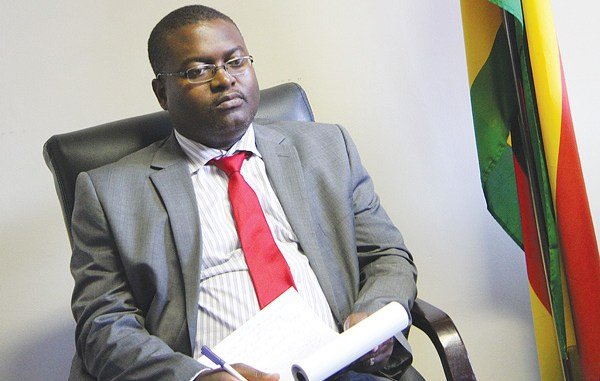
The mandate of Tagwirei’s new committee is to bring finality to the land ownership conundrum and unlock financing for agriculture. It hopes to accomplish this by facilitating the issuance of title deeds to indigenous farmers.
Tagwirei — who was hit with targeted sanctions by the US Treasury on 5 August 2020 for allegedly “derailing economic development and harming the Zimbabwean people through corruption” — is a close confidante of President Emmerson Mnangagwa, having served on his advisory panel.
After months of public speculation on the specifics of Mnangagwa’s revised agrarian reform plan, the answers began emerging this week when Tagwirei was granted a lengthy interview on state television.
Stakeholders in the farming sector have been anxious to see what the new land tenure system would look like, following an unexpected cabinet announcement on 8 October 2024 laying out plans for a completely new tenure regime. According to that official statement, the new title would be bankable, unlocking collateral to support financing.
A troubled history
For decades, Zimbabwe’s sceptical bankers have refused to embrace 99-year leases issued to new farmers by the state, arguing that the permits were too risky to use as collateral for loans. They complained that the leases were not registrable, transferable and bankable; in the event of a loan default, the bank would be unable to sell the land since it belonged to the state.
Political questions also swirled around the announcement of a new tenure programme. Did the influential veterans of the 1970s liberation war support this new course? Was the international community now calling the shots via the debt-resolution talks which are being delicately steered by the African Development Bank and former Mozambican president Joaquim Chissano? Were Zanu-PF’s internal ructions — with Mnangagwa’s allies controversially campaigning for the extension of his tenure of office beyond the constitutionally permitted two terms — suddenly creating a new self-preservation dynamic as the squabbling political elites sought closure to the long-standing land tenure headache? Was the broke government now desperate for some kind of solution after agreeing to pay US$3.5 billion to dispossessed white farmers? So many questions.
The dramatic announcement of a new land tenure approach in October sparked a great deal of speculation as economic commentators wondered whether the champagne socialists who run Zanu-PF were finally buckling to neoliberal pressure and selling out the much-vaunted land revolution.
What’s new? Enter Tagwirei
Tagwirei was at pains to explain that his committee has no mandate to allocate land. Land, he empasised, is allocated through the Zimbabwe Land Commission and the ministry of Lands.
However, his unconvincing narrative has left the government entangled in a web of illegalities. In terms of section 297 of the constitution, land tenure systems are the remit of the Land Commission.
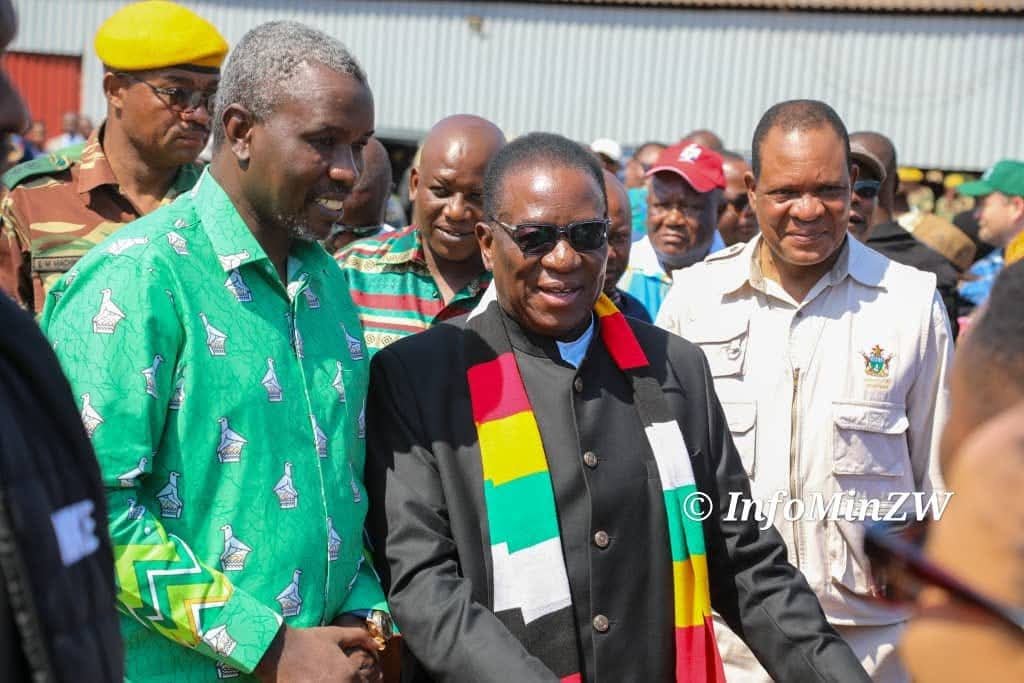
Tagwirei (left) chats with Mnangagwa at the president’s Pricabe Farm near Kwekwe, while Lands, Agriculture and Rural Development minister Anxious Masuka (right) follows proceedings.
The Land Commission’s responsibilities are clearly spelt out: ensuring fairness; accountability; conducting regular land audits; making recommendations to the government; resolving complaints and disputes about allocation and administration of land; facilitating equitable access to agricultural land; eliminating discrimination, particularly gender discrimination, in land matters; and enforcing the law to prevent multiple farm ownership.
Tagwirei’s committee is in real danger of being dismissed as a parallel structure with no legal legs to stand on. He efforts to parry this accusation during the interview were ineffective.
“We come in to ensure that a piece of land which has been allocated to a specific family is given a proper security of tenure document that is acceptable to the banks and also that is acceptable wherever they want to transfer to someone whom they may choose. That’s where we come in. We don’t allocate, we don’t even receive complaints…We make sure that we would look at the survey, we make sure that there are pegs to ensure that this person has really gotten the piece of land that the ministry of Agriculture has intended to give to him, and we make sure that there’s adequate title,” Tagwirei said.
Tagwirei outlined the new process, but his explanation has left more questions than answers.
Is the title deed bankable?
On one hand, Tagwirei says the land remains the property of the state, but on the other hand he asserts that banks will be able to offer loans on the back of these title deeds.
As it turns out, if the farmer defaults on the loan, the bank cannot proceed to seize the land. Instead, the financial institution must sit down with the government with a view to finding a solution. This may entail re-allocating the farm to another Zimbabwean who does not already own land.
A question inevitably arises: If the banks cannot seize land which has been used as collateral, then how bankable are these so-called title deeds?
This is how Tagwirei explained it:
“The land belongs to the government, it does not belong to the bank. If you look at the total value of this land that we are talking about, the actual value is around US$20 billion. There is no bank that can give a mortgage for that land.
“So what the banks are merely doing is administering the mortgage that this farmer is going to get on that piece of land. The ultimate owner of this land still remains government, it’s not the bank that owns it.”
What the Zimbabwean authorities need to realise is that a bankable title deed is important because it provides proof of ownership and legal standing for a property, which is essential for securing loans. But a title deed is not made bankable via mere political pronouncements. For a title deed to be considered truly bankable, it must grant the holder clear, unquestionable rights, especially the rights to sell the land.
Banks need assurance that if a farmer defaults on their loan, the collateral (in this case the land) can be easily liquidated to recover the outstanding debt.
Please read also: Zimbabwe’s land revolution takes new turn: Will title deeds rescue or sink agriculture?

